Citrus Mealybug infestation
Taki Shen
5 years ago
Featured Answer
Sort by:Oldest
Comments (38)
bklyn citrus (zone 7B)
5 years agoMeyermike(Zone 6a Ma.)
5 years agolast modified: 5 years agoRelated Discussions
(Noxious Bamboo Mealybug) Antonina pretiosa ferris infestation
Comments (4)I didn't find much online, other than that it generally doesn't kill the bamboo, but can mess it up some. I just bought 2 10 g containers (6' tall) of the atrovaginata last fall, and it looks really good, but haven't seen any shoots yet. I did find this: "The best treatment we have found at our home nursery is a retail product called Bayer Advanced Tree and Shrub insecticide available at Home Depot or Lowe's etc. This product claims to work for a year and seems very effective. There are many other products that can also be used if you have your own favorite insecticide for Mealy Bugs. The "Bayer" product is a systemic so takes awhile to become effective. In the meantime...visable Mealy Bugs should be sprayed with any good insecticide soap. The soap should be applied directly on vi sable Mealy and repeated when new Mealy's crawl form their shelter under culm leaf. If carefully done, the culm leaf can be peeled away from plant slightly to expose Mealy for spraying." Good luck....See MoreMealybug Infestation- Please Advise
Comments (10)Hello again, Mindy.. Early this summer I sprinkled a pelleted product by Bayer with imidacloprid on just about all of my amaryllis. Last year I lost over 10 of my large prized bulbs the the NBF and they did a job on me so I was motivated this year to try a systemic poison..It's early, but so far all look good as far as the NBF but I've actually never had a mealy bug problem..thankful for small blessings.. It is a shame you didn't put your plants out..but you've still got the better part of 2 months left...you could start them out in morning sun..the sun is already lower in the sky..and continue to feed them..Feeding is very important! I put 14-14-14- Osmocote pellets on the soils surface and I still (just about every time I have to water) use a diluted Miracle Grow..I've got lots of happy green leaves..I know one can over fertilize and not end up with as many flowers..I've probably done that too in the past.. If I had a conservatory I would bring them in in the fall and let them continue to grow at their own pace and not force dormancy. I did force dormancy last year and I wasn't happy with the results and so this year DH is going to hang a few more lights in our furnace room (it's not completely underground and I'm going to let them hold on to their leaves as long as they want and continually feed them (less). I had about 10 plants that insisted on holding on to their leaves and they did better than the dormant bulbs. It's true they will not bloom when you want them for the holidays..just buy a few new ones..but they will bloom sporadically for you for the entire winter..a nice treat..with 40 bulbs you should have lots to look forward too. I'm down on the South Shore so I'm lot warmer than you are, but I'd die for an indoor plant room..take advantage of yours... and good luck..with your mealy bugs..I'm sure others have had the same problem and will be able to give you some good advice... Donna...See MoreIs this another symptom of Asian Citrus Psylliad Infestation?
Comments (3)I never knew about citrus gummosis, and have now done my research. The tree was here on the property, in a pot, very neglected and almost dead. We started watering it, and new leaves began to grow. We then put it in the ground. It looks so healthy, and is watered by a drip system. It suddenly sprouted a lot of new growth, which is where the psyllids were found. This gumming stuff is high on one branch, but it appears to me that the entire tree might have suffered damage in the past. I will do as you suggest, and keep my eyes open. It's in it's own place, not touching other citrus, so I hope it's problems will stay with it and not spread to the others. Thanks! Suzi...See MoreCitrus mealybugs
Comments (7)Fortunately it is on only one orange tree. The Dwarf Mandarin. It is medium to heavy infestation. I went and blew a lot of them off with a hose. The trees are in the ground in my yard. I have 5 different orange trees. I also found a few of them on my pomegranite tree also....See MoreJean
5 years agolast modified: 5 years agoLemon Lime Orange Zone 6a
5 years agotropicofcancer (6b SW-PA)
5 years agolast modified: 5 years agoLemon Lime Orange Zone 6a
5 years agoLemon Lime Orange Zone 6a
5 years agotropicofcancer (6b SW-PA)
5 years agolast modified: 5 years agotropicofcancer (6b SW-PA)
5 years agoLemon Lime Orange Zone 6a
5 years agolast modified: 5 years agotropicofcancer (6b SW-PA)
5 years agolast modified: 5 years agoTaki Shen thanked tropicofcancer (6b SW-PA)tropicofcancer (6b SW-PA)
5 years agotropicofcancer (6b SW-PA)
5 years agolast modified: 5 years agoLemon Lime Orange Zone 6a
5 years agolast modified: 5 years agoLemon Lime Orange Zone 6a
5 years agoLemon Lime Orange Zone 6a
5 years agolast modified: 5 years agoMeyermike(Zone 6a Ma.)
5 years agoMeyermike(Zone 6a Ma.)
5 years agoTaki Shen
5 years agoTaki Shen
5 years agolast modified: 5 years agoLemon Lime Orange Zone 6a
5 years agotropicofcancer (6b SW-PA)
5 years agoLemon Lime Orange Zone 6a
5 years agolast modified: 5 years agoLemon Lime Orange Zone 6a
5 years agotropicofcancer (6b SW-PA)
5 years agoMeyermike(Zone 6a Ma.)
5 years agotropicofcancer (6b SW-PA)
5 years agolast modified: 5 years agoMeyermike(Zone 6a Ma.)
5 years agolast modified: 5 years agoLemon Lime Orange Zone 6a
5 years agolast modified: 5 years agoLemon Lime Orange Zone 6a
5 years agoLemon Lime Orange Zone 6a
5 years agolast modified: 5 years agoLemon Lime Orange Zone 6a
5 years agoLemon Lime Orange Zone 6a
5 years agobklyn citrus (zone 7B)
5 years agoTaki Shen
5 years agoMeyermike(Zone 6a Ma.)
5 years ago
Related Stories

GARDENING GUIDESHow to Keep Your Citrus Trees Well Fed and Healthy
Ripe for some citrus fertilizer know-how? This mini guide will help your lemon, orange and grapefruit trees flourish
Full Story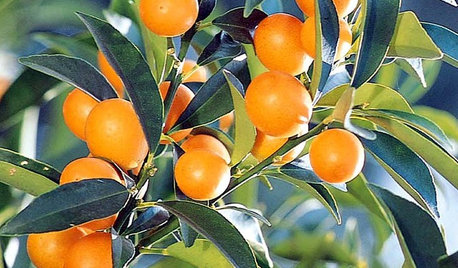
GARDENING GUIDESDwarf Citrus Trees Offer Miniature Size With Maximum Flavor
Find out how to grow the fruit you love in a smaller space
Full Story
GARDENING GUIDESGreat Design Plant: Kumquats for a Juiced-Up Winter
Grow it for the edible fruit or its good looks alone. This citrus cousin will brighten any gray winter day
Full Story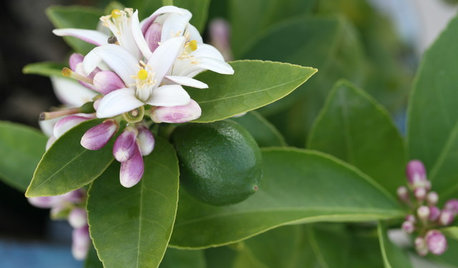
GARDENING GUIDESA Versatile Lime Tree Is a Happy Addition to a Warm-Winter Garden
What can you do with a lime tree? Quite a lot, as it happens
Full Story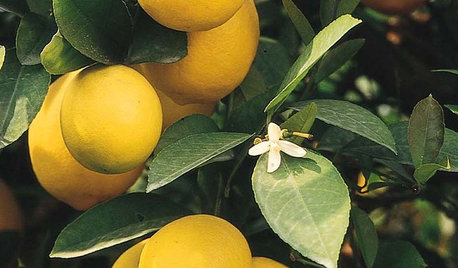
EDIBLE GARDENSThere’s a Lot to Love About a Meyer Lemon Tree
See how to grow this sweet fruit tree
Full Story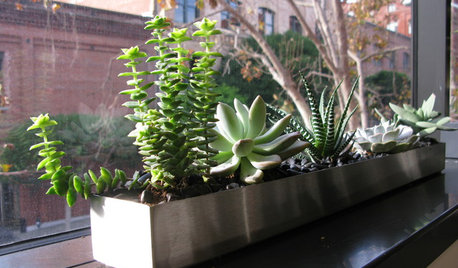
CONTAINER GARDENS5 Houseplants That Thrive in Full Sun
Place these sun lovers in south-facing windows
Full Story
HOUSEPLANTSIndoor Winter Gardens for Cheerier Days
Bring plants inside for drab-days mood boosting — not to mention cleaner indoor air and protection for your greenery
Full Story
GARDENING GUIDESHow to Pick a Mulch — and Why Your Soil Wants It
There's more to topdressing than shredded wood. Learn about mulch types, costs and design considerations here
Full Story
LIFEHow to Outsmart Backyard Critters
Learn to think like a raccoon, skunk or squirrel to keep your home safe and your garden intact
Full Story
HOUSEPLANTS8 Essentials for Healthy Indoor Plants
Houseplants add so much to our homes — and can thrive when grown in the right conditions. Keep these tips in mind
Full Story


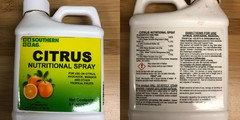

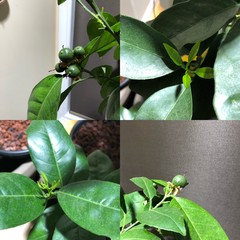
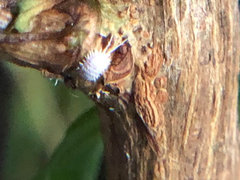
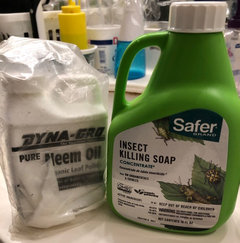
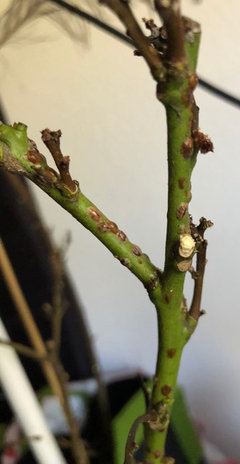
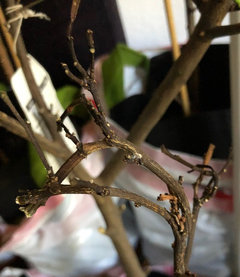
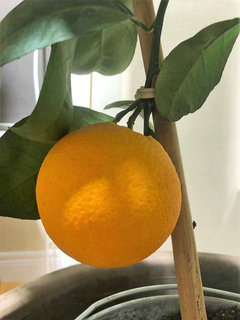
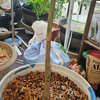
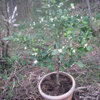
Lemon Lime Orange Zone 6a